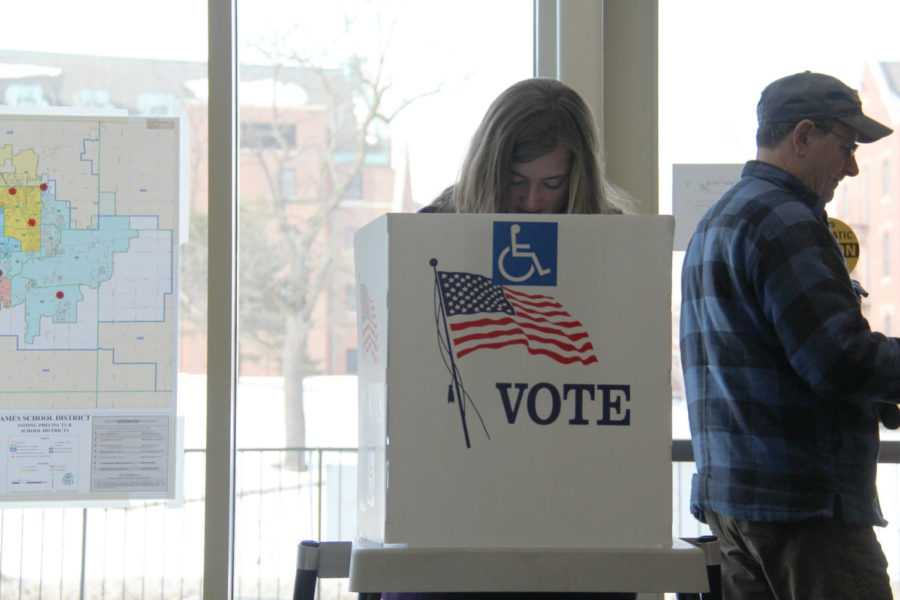Glawe: Voting habits need revision
Columnist Glawe believes that voting all incumbents out of office is a bad idea. Glawe suggests in his article that instead of wiping the board completely, voters should more specifically tailor their voting habits to the candidate and pay closer attention to what the candidates’ stances.
September 8, 2014
A dear friend of mine recently confronted me about the upcoming elections. His strategy is to vote out all incumbents, no matter what their political affiliation is. I nearly had an allergic reaction when his words connected with my ears.
As if to confirm the self-diagnosis that I am indeed allergic to such frivolity, I floated the idea to my politically savvy friends and each unsurprisingly shuddered in unison.
Unfortunately, this was not an isolated incident. Upon further research, I have found many websites and organizations — i.e., kickthemallout.com — advocating the same approach and each has a substantial following. Since this was the general strategy of the tea party for its victories in 2010, we should take this idea more seriously.
Let me first start by saying that this is an irresponsible decision. Anyone who plans on taking this route in the upcoming elections immediately surrenders his or her credibility as a diligent voter and as a citizen, though I suppose the phrase “diligent voter” in itself is a contradiction at times.
The general disapproval of Congress certainly gives some weight to the “vote them all out” proposition. However, there is obviously a better way of going about the voting process. There lies a very fundamental question to the exercise of our most basic right — How should we be voting? I’ve always found it interesting to hear the way people decide how to vote, and I’ve often run into feelings of despair when I hear people voting in ways I think are criminal. Such instances truly make me wonder if there really is a “proper” way to vote.
It seems like there could be an infinite number of ways to decide who will represent you. We are forced to picture our dream candidate and apply that picture to the election at hand, but this often becomes muddled in the election process since candidates and their staffs do their absolute best to appear perfect. In that sense, they are not real — every candidate is a fabrication.
Nonetheless, we can think of some basic characteristics that could provide a sturdy foundation for us voters.
For anyone to dream up the ideal politician, the voter must first leave his or her political allegiances at the door. We must assume something similar to John Rawls’ “Veil of Ignorance” where we have no idea what our political leanings are.
Henry Fairlie once wrote an essay titled “The Politician’s Art” in Harper’s Magazine where he defined some of the characteristics we might look for in a politician. A good politician must be able to adapt to ever-changing situations, where every single political action is unique and the alliances are always varying. A good politician would have the skill to dance with an issue — any issue — and do so without concern or fear that they will be voted out. In that sense, a politician must also be able to defend his or her actions, regardless of if he or she has the constituents’ support.
This can be summed up in one word: instinct. The ideal politician has great political instinct and has the ability to maneuver under constraint. As Jean-Paul Sartre hypothesized in his essay on the French Resistance that constraint, to the political actor, represents freedom. Constraint can birth an opportunity to act and a way to prove one’s political abilities.
So what we really should be looking for is a politician who is actually a “politician” or “political actor.” It is incredibly difficult to apply this concept to modern-day elections. Pseudo-events litter our television screens where candidates try to win the hearts of the electorate by visiting that small-scale farmer up in northeast Iowa. Some people fall for the media trick, but diligent voters will ignore these scenes and look for the few instances where the candidate or politician becomes “real.”
Take, for instance, that time when Mitt Romney was forced to respond to hecklers at the Iowa State Fair — I think he did a poor job. His speech was broken up from its state of scripted unreality and he was free to confront his opposition. He didn’t do a very good job of confronting the hecklers, but perhaps a truly skillful politician could have done better.
A great time to test a candidate’s political skill is in the process of debate. Now, most of the time debates are to a large degree scripted, but we can learn much more about the candidates than we could at a scripted event at some manufacturing plant in some random town.
To finish, instead of simply defaulting to voting out all incumbents, perhaps we can refine our definition of what constitutes a good candidate. There are many debates coming up in the next several weeks, and I urge everyone —especially frivolous voters — to watch, learn and debate with your friends. Diligence is, after all, fundamental to the spirit of the democracy.







